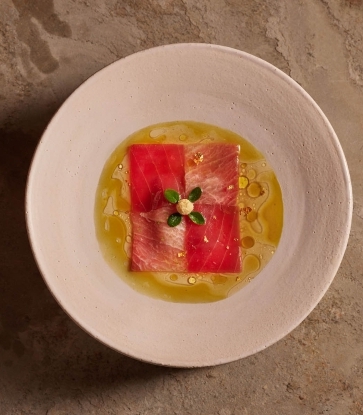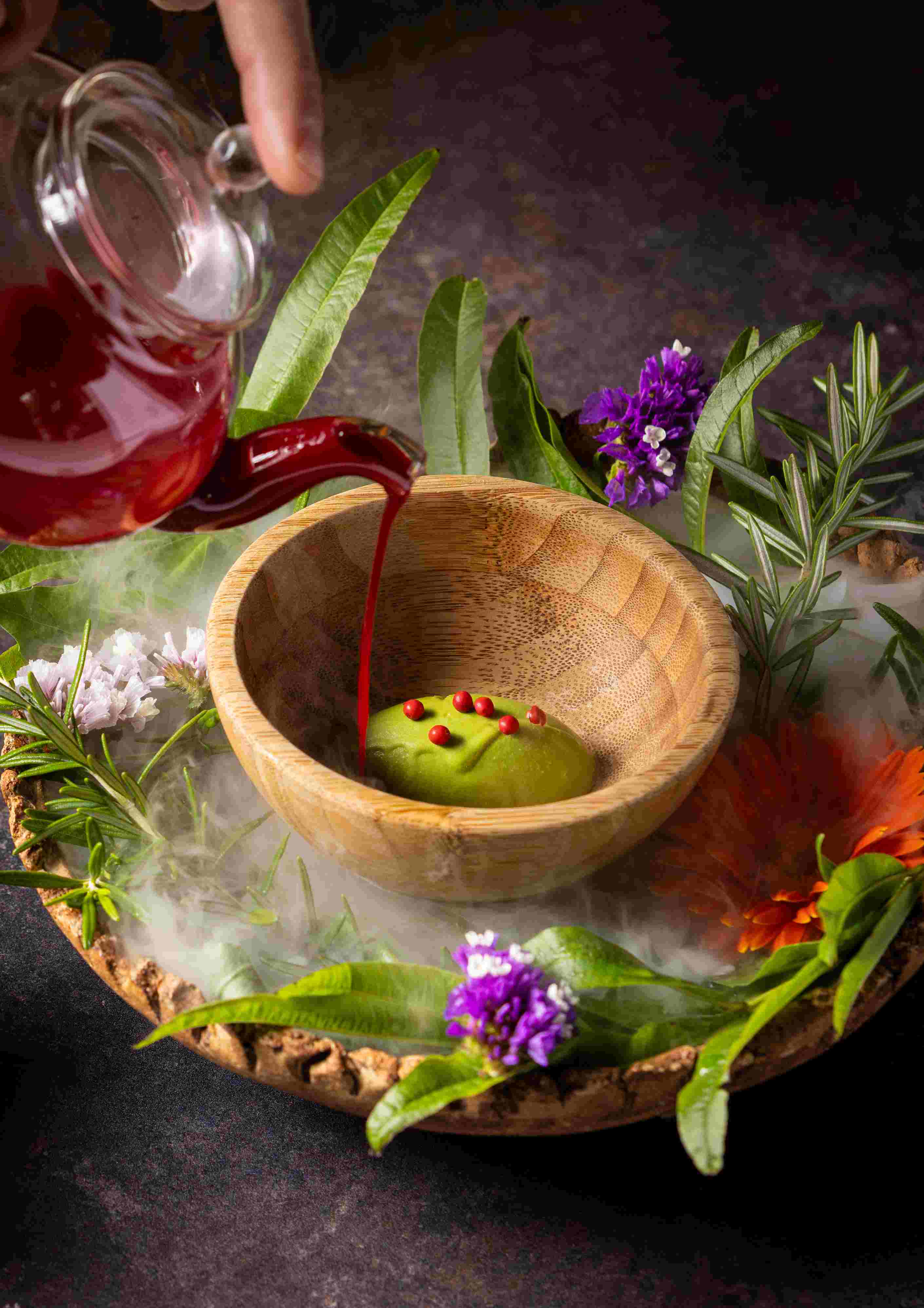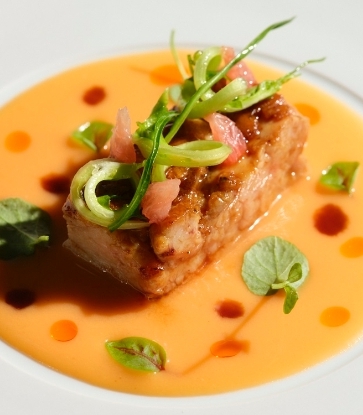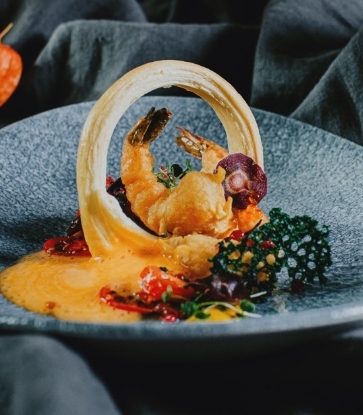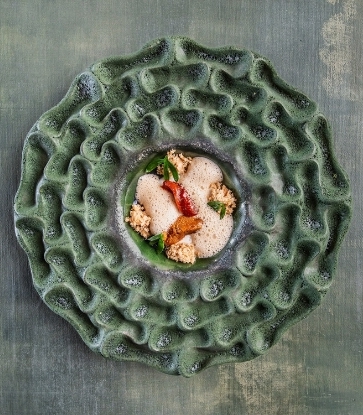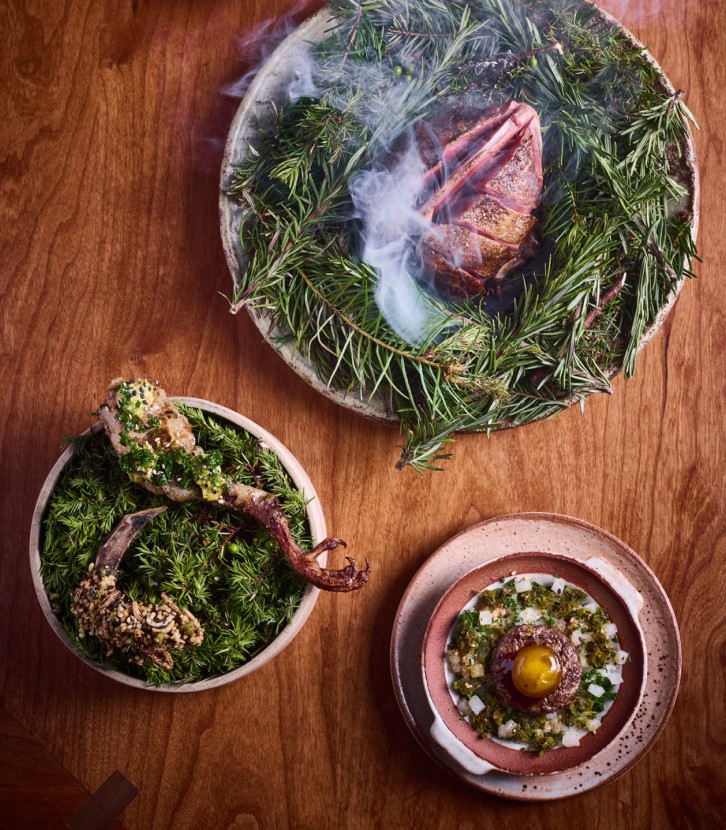We are delighted to announce that five restaurants have joined the MICHELIN Green Star Community in the Great Britain & Ireland selection 2025, bringing the total number of members to 36.
The MICHELIN Green Star Community comprises restaurants at the forefront of the industry when it comes to their mindful practices – restaurants which offer dining experiences that combine culinary excellence with mindful initiatives aimed at reducing their overall impact on the natural world.
Those within the selection that impress the Inspectors the most are invited to form part of the MICHELIN Green Star Community, where they are encouraged to share their innovative and inspiring visions by fostering dialogue and collaborations that will help pursue progress and shape the future of gastronomy. These restaurants are a source of inspiration both for keen foodies and the hospitality industry as a whole.
Every Green Star Community restaurant is different and works in its own unique way – but all strive to make a difference to the world around them. Many work directly with growers, farmers and fishermen; forage in hedgerows and woodlands; grow plants and rear animals; and use regenerative methods such as no-dig vegetable gardens and successional cover crop growing. They also often address issues related to ethics and wellbeing, as well as contributing to local, national or global charitable and educational projects.
Read on to learn more about our five new member restaurants, as well as to discover the full Green Star Community for 2025.
Homestead Kitchen, Goathland

Mindful Initiatives: A garden designer helps the team make the most of their land, with companion planting and re-wilding playing a key role. Their furniture is sourced from local charity shops or auction sites, used candles are remelted, corks are donated and menus are often reused as seed pots. They also support the local community wherever they can, from hosting walks and workshops to campaigning to keep their local bus service in operation.
Jericho, Plungar

Mindful Initiatives: Numerous smaller projects come together here to create a big impact, with everything a reflection of their surroundings and heritage. They spend time with their suppliers and only work with those who share their ethos. Bespoke pottery is made by a local lady and some of their knives are created by a local company from farrier's rasps. Fruits are from the neighbouring orchard, flour is from nearby Tuxford Windmill and a nose-to-tail ethos can be seen throughout the 20 or so courses, with different parts of the same ingredients used and any leftovers aged or preserved for later.
Jericho enters The Guide for the first time this year.
Native, Tenbury Wells

Mindful Initiatives: As well as growing everything they can in their gardens, greenhouse and orchard, the team forage from the Estate, while meat is sourced from local butchers and farmers. Regenerative sources are favoured and everything is picked on the day that it is used. The immersive dining experience includes a 'Root-to-Shoot' weekday lunch and 'Nose-to-Tail' Sunday lunch, reflecting their ethos. The sustainability and welfare credentials of their ingredients is at the core of their vision, with 'wild food' and game a focus. They also make syrups for their cocktails and promote British, organic, biodynamic and low-intervention wines.
[Edit: This restaurant has now closed]
Pythouse Kitchen Garden, Tisbury

Pythouse Kitchen Garden entered the 2025 selection with a Bib Gourmand award, as well as being welcomed into the Green Star Community, and is currently the only Bib Gourmand awarded restaurant in the Great Britain & Ireland Guide to be part of the Community. It's a truly charming place, occupying a spot within a red-brick former potting shed in a Victorian walled garden. Said three-acre garden is the lynchpin of their business, and both food and drink recipes are created so as to celebrate this homegrown produce. Unusually, vegetables take the lead here, with the protein only providing a supporting role; in a nice touch, the team can also tell you how and where the various components of your meal were grown and even when they were harvested. Some of the dishes are cooked over fire, some are designed to share, and all are great value.
Mindful Initiatives: Their main objective here is to move away from food systems that damage the environment, whilst also working to regenerate soil health, protect native wildlife and put people and the planet first. They visit their producers and their producers also visit them, in order to share their methods and insights. The menus are designed with guests' health in mind and use wild and grass-fed animals wherever possible, which are high in macro-nutrients. They produce their own soft drinks and even their toiletries are crafted by a local company from their own ingredients.
Pythouse Kitchen Garden also won a MICHELIN Bib Gourmand this year. Check out our full list of new Bib Gourmands.
Wild Shropshire, Whitchurch

Mindful Initiatives: Their farm has a strict no-dig policy and everything is either used in their dishes, preserved in their Lab (a centre for fermentation, experimentation and testing new ideas), composted ready to create new life, or recycled. Their goal is to divert as much waste as possible from landfill and this closed loop currently makes them 96% waste free. They make all their own juices and non-alcoholic drinks and offset the carbon emissions of their diners' travels to reach them, as well as having plans to use solar energy, collect rainwater and build a pond to increase biodiversity.
Below is the full list of restaurants who make up the Green Star Community in The MICHELIN Guide Great Britain & Ireland 2025.
England
- Angela's, Margate
- Apricity, London
- Black Swan, Oldstead
- Coombeshead Farm, Lewannick
- Crocadon, St Mellion
- CULTURE, Falmouth
- Daylesford Organic Farm, Daylesford
- Exmoor Forest Inn, Simonsbath
- Forge, Middleton Tyas
- Homestead Kitchen, Goathland – New Member
- Interlude, Lower Beeding
- Jericho, Plungar – New Member
- Le Manoir aux Quat' Saisons, Great Milton
- L'Enclume, Cartmel
- Marle, Heckfield
- Moor Hall, Aughton
- Native, Tenbury Wells – New member [now closed]
- Oak, Bath
- Osip, Bruton
- Petersham Nurseries Café, London
- Pine, East Wallhouses
- Pythouse Kitchen Garden, Tisbury – New Member
- Restaurant Sat Bains, Nottingham
- Silo, London
- St. Barts, London
- The Small Holding, Kilndown
- Tillingham, Peasmarsh
- Where The Light Gets In, Stockport
- Wild Shropshire, Whitchurch – New Member
- Wilsons, Bristol
Scotland
- Inver, Strachur
Wales
- ANNWN, Narberth
- CHAPTERS, Hay-on-Wye
- Henry Robertson, Llandderfel
- The Whitebrook, Whitebrook
Republic of Ireland
- Kai Restaurant, Galway
All the Winners from The Ceremony
The Full List of MICHELIN Stars
A Closer Look at the New MICHELIN Stars
The MICHELIN Special Award Winners 2025
Plus in-depth analysis on the winners from The MICHELIN Guide's Inspectors:
Moor Hall: A New Three-Star Restaurant
OMA: A Landmark for Greek Cuisine
Plates London: The First Vegan Starred Restaurant
Gorse: The Jewel in Cardiff's Crown
Humble Chicken: Is This London's Most Exciting Restaurant?
Skof: Manchester's Latest MICHELIN Star
Hero Image: Pythouse Kitchen Garden, Tisbury (© Zara Whitfield)



